7. South Park: Bigger, Longer & Uncut (1999)
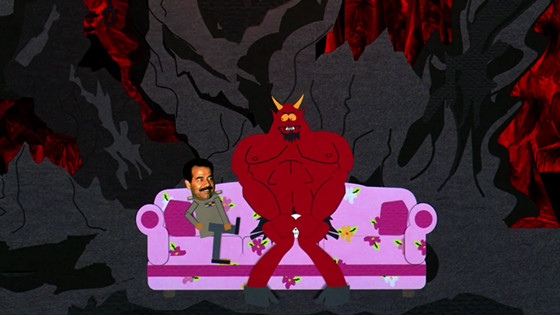
Ultra-vulgar, endlessly subversive, unapologetically silly, and crowded with catchy, tuneful, and churlish numbers, this gleefully R-rated animated musical from Trey Parker and Matt Stone takes their late night cartoon series––something of a 1990s phenomenon that’s still going strong––and offers what the title aggressively advertises; “Bigger, Longer & Uncut”.
When the third graders of South Park Elementary sneak into a screening of Asses of Fire, the new, rude, and rather upsetting film from the kids’ favorite Canadian TV stars Terrence (Stone) and Philip (Parker), the impressionable crew of Stan, Kyle, Kenny, and Cartman emerge excited and with a broadened vocabulary that’s now chock full of blunt zingers like the lyrics to their new favorite song, “Uncle Fucker”. The level of profanity reaches a fever pitch in South Park, upsetting parents, teachers, and polite society at large.
From there the South Park film crashes and careens in numerous directions, focussing on over a dozen musical numbers that wisely parodies Broadway style singalongs, while ribbing Disney’s animated musicals, too.
Vicious and uncompromising satire is rarely as inspired and memorable as it is here, in a film that amazes and excites at least as many as it offends and annoys. This is a ruthless comedy that takes no prisoners and certainly stands up to repeat viewings. And if you need more incentive to see this era-defining comedy consider that it also takes pains to answer that ages old question (at least amongst the uptight): “What the heck is a rimjob?”
6. Wayne’s World (1992)
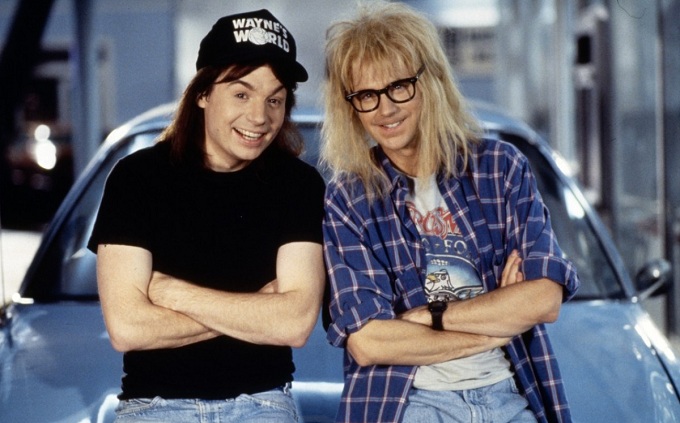
Michael Myers’ feature film debut is also the most enjoyable of all the Saturday Night Live big screen spin-offs––with the possible exception of 1980’s The Blues Brothers––smartly directed by Penelope Spheeris, joyfully responsible for reacquainted the world with the joys of Queen’s “Bohemian Rhapsody” while also providing a wealth of pop culture references to the mainstream (“We’re not worthy. We’re not worthy”, “Schwing!”, “Not!”, and “Party on!” all chiefly amongst them).
Myers is impossibly charming as public-access television host Wayne Campbell who, along with co-host Garth Algar (Dana Carvey) are local celebrities in Aurora, Illinois.
Adored for their enthusiasm for rock and roll, and their winning sense of humor, the duo are soon tempted by a sleazy bigwig television producer named Benjamin Oliver (Rob Lowe), who wants to bring them to prime time and, as Garth accidentally intercepts in Benjamin’s day-planner, intends to “Purchase feeble public access cable show and exploit it.”
An often oddball, meta, amusing, and very even-tempered comedy with endearing and downright lovable characters, Wayne’s World is a gracious and unassuming slice of comic perfection.
5. Rushmore (1998)
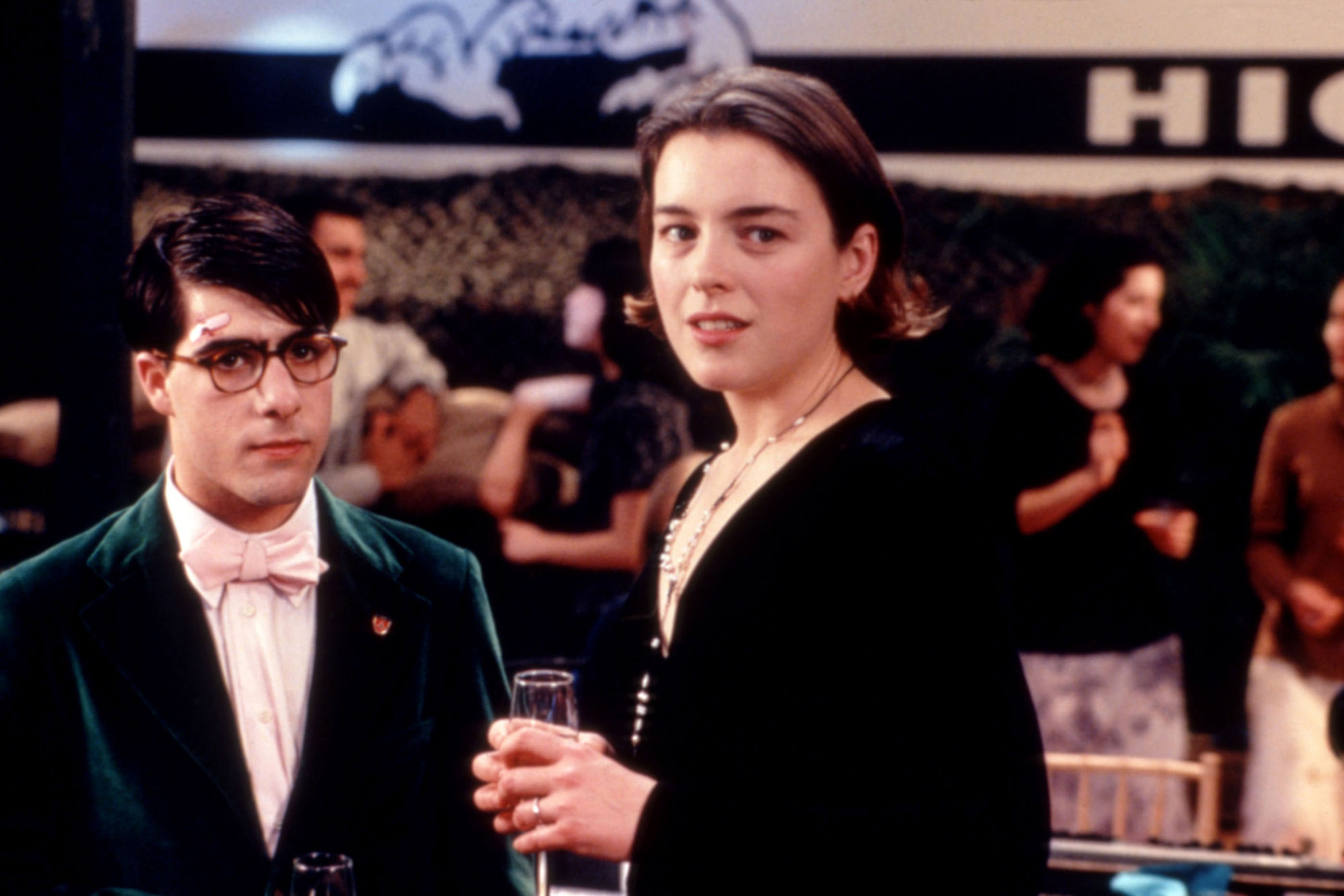
One of auteur American writer-director Wes Anderson’s finest films, Rushmore (which Anderson co-wrote with Owen Wilson) is a critically acclaimed coming-of-age classic with style, sophistication, a great soundtrack, and the off-kilter literary stylings of JD Salinger lurking somewhere in the periphery.
Jason Schwartzman, in his cinematic debut, is Max Fischer, an ambitious and overly eccentric 15-year-old scholarship student at Houston’s prestigious Rushmore Academy.
Smitten by a gorgeous first-grade teacher named Rosemary Cross (Olivia Williams), Max is soon obsessed and turns to the parental paragon Herman Blume (Bill Murray), father of two of his schoolmates, for courtship advice on how best to woo this older woman. Of course complications ensue, loyalties are divided, and friendships fracture as Rushmore unfolds into a constellation of comic vision and considerable craft.
Adding to cinematographer Robert Yeoman’s deep focus lensing, Anderson’s carefully constructed framing is packed with dense visual information, first-rate production values, clever literary allusions, and it’s all bolstered by a soundtrack rich in Cat Stevens, the Faces, the Kinks, and other memorable and catchy tunes. Rushmore was Anderson’s first fully realized feature and still one of his finest, and the film also helped revive Murray’s then waning career. Comedy is rarely this graceful and attractively twee.
4. Dumb and Dumber (1994)
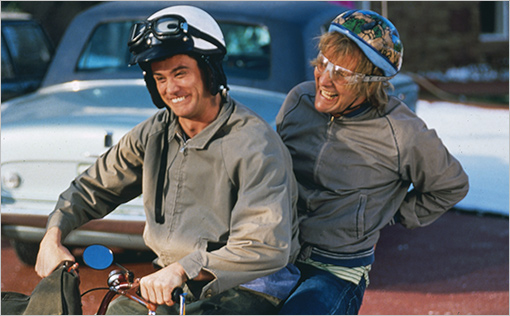
1994 was an incredible breakout year for Jim Carrey, the prolific Canadian comic actor was absolutely on fire. With his highly rated TV series In Living Color still performing well and with lead roles in no less than three box-office megahits (Ace Ventura, The Mask, and this one) he was on top of the world and stayed there for a number of years.
As imbecilic limo driver Lloyd Christmas, Carrey hit new heights of knee-slapping lowbrow hilarity in what was also one of the writing-directing team of Bobby and Peter Farrelly’s most edifying achievements.
Lloyd and his bff Harry Dunne (Jeff Daniels) inadvertently stumble upon a suitcase full of money belonging to Mary Swanson (Lauren Holly)––a beautiful babe that Lloyd drove to the airport only to obsessively crush on immediately following––unaware that it’s the ransom she must pay to blackmailers who have kidnapped her husband.
Finding themselves on a stupidly ill-advised cross-country road trip to Aspen to return the cash, Harry and Lloyd encounter hired hitmen, pissed off police officers, and misadventure every step of the way.
Carrey’s deliberately overworked and cartoonish performance may not work for everyone––indeed, he was bestowed with a Raspberry nomination for his overdone efforts––but it’s also easy to enjoy his erratic physicality, nonstop riffing, and slaphappy gaga energy. Also easy to enjoy is Daniels’ entirely against-type performance, particularly an extended scene atop a toilet, with requisite questionable taste, not to mention the chemistry both leads have as they each try to out stupid the other.
While the sequels that came afterwards, including a short-lived Saturday morning cartoon, are largely forgettable, what’s not at all easy to dismiss is the wealth of one-liners and rejoinders that this film foisted upon pop culture forever after (“We got no food, we got no jobs, our pets heads are falling off!”, “You can’t triple stamp a double stamp!”, “Pullover? No, this is a cardigan, but thanks for asking!”, “Ah like you uh lot!”). Any way you cut it, Dumb and Dumber is a comedy classic with a warranted cult following.
3. Groundhog Day (1993)
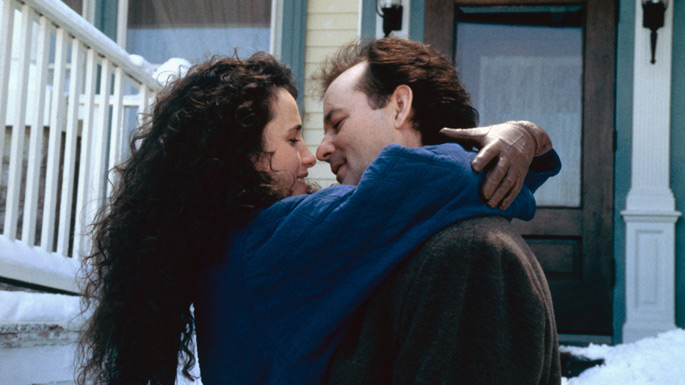
The premise alone for this Harold Ramis comic fantasy, co-written with Danny Rubin, is ripe with endlessly amusing possibility as weatherman Phil Connors (Bill Murray) finds himself trapped in a curious time warp. Doomed or perhaps blessed, as it were, Phil is stuck reliving the same day over and over again in Punxsutawney, Pennsylvania for his annual coverage of the Groundhog Day festivities.
As Phil wearies of his strange predicament apathy and depression sets in, but deciding to impress his co-worker, news producer Rita Hanson (Andie MacDowell) has an interesting effect on Phil, who then makes efforts to use his seemingly endless time to improve himself and perhaps, somehow, save himself in the process.
An amusing, endearing, poignant, and ultimately life-affirming film, Groundhog Day is a film that improves with repeat viewings and whose rich premise will happily haunt the viewer for days afterwards. Part existential human drama, part alternately silly-smart comedy, this is the late director Ramis’ finest work, and the same can possibly said for Murray, too. Groundhog Day is time well spent and a film you most likely won’t want to end.
2. Being John Malkovich (1999)
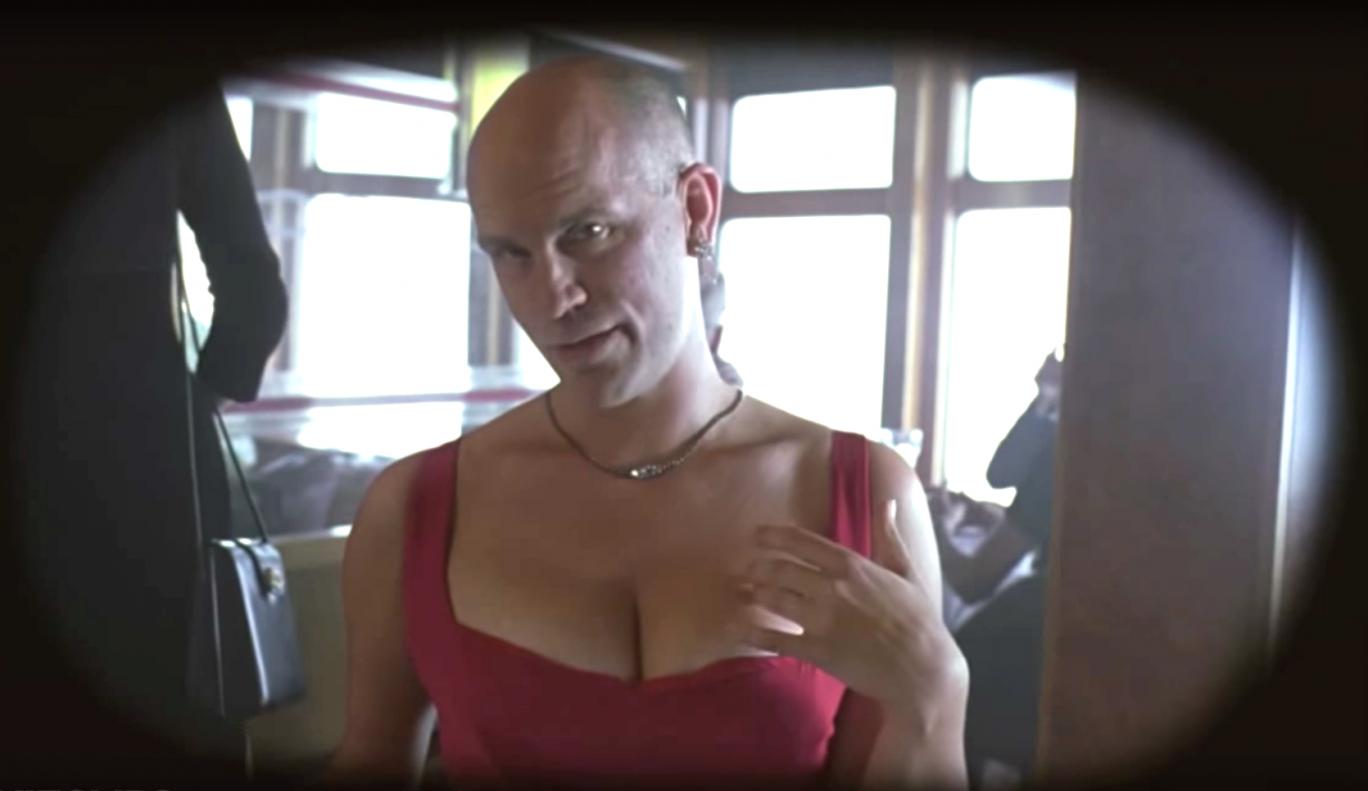
The feature-length directorial debut of Spike Jonze, the Philip K Dick-inspired, decidedly strange, and extremely quirky comedic fantasy, Being John Malkovich also brought screenwriter Charlie Kaufman into the limelight he so richly deserved (both Jonze and Kaufman along with co-star Catherine Keener received Oscar nominations for their wonderful work).
John Cusack is Craig Schwartz, a New York City puppeteer who’s just started a new temp stint as filing clerk at LesterCorp, in the rather strange low-ceiling offices of the Mertin-Flemmer Building’s 7½ floor. Here Craig works under the watchful and rather unfocused eye of the eccentric Dr. Lester (Orson Bean), along with the startlingly attractive fellow employee Maxine Lund (Keener).
While scoping out his new work digs Lester inadvertently stumbles upon a portal that leads into the mind of well known character actor John Malkovich (John Malkovich)––though only for a rather Warholian fifteen minutes before being unceremoniously ejected and dropped into a ditch alongside the New Jersey Turnpike.
An unpredictable, expertly made, bizarre, and energetic film, Being John Malkovich is a very strange and very singular motion picture experience and it’s also a whole lot of fun.
1. The Big Lebowski (1998)
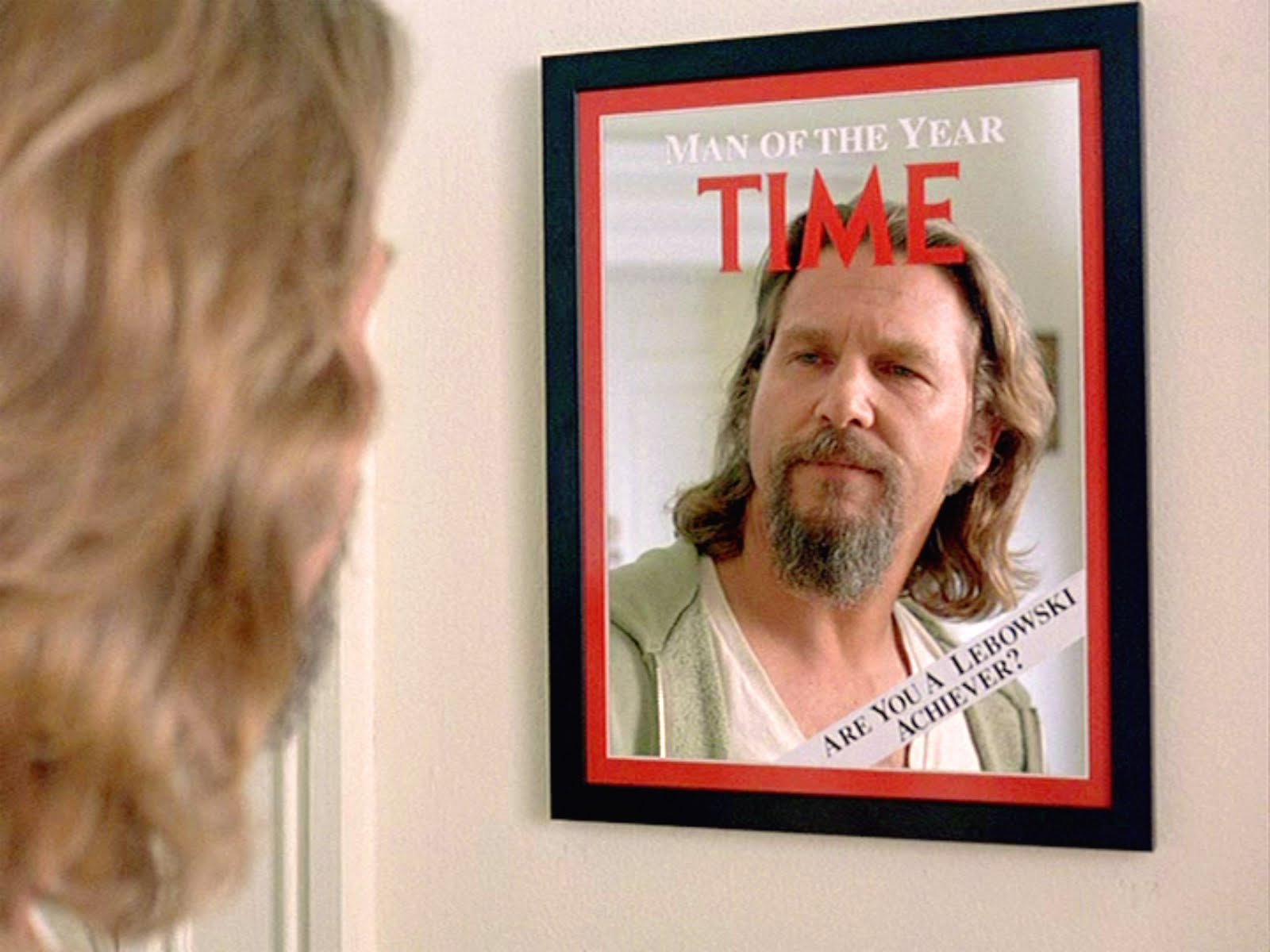
“I’m the Dude, so that’s what you call me. You know, that or, His Dudeness, or Duder, or El Duderino, if you’re not into the whole brevity thing,” explains the titular unemployed layabout, in the Coen brother’s most idiosyncratic and outright enjoyable shaggy-dog misadventure.
As the Dude in question, Jeff Bridges will be forever identified as the personable pothead, who’s Raymond Chandler inspired exploration to nowhere (The Big Lebowski rubric is a reference to “The Big Sleep”) has spawned one of the most fervid fanbases around, and it’s easy to see why.
While Lebowski Fest occurs in cities across North America, alongside regular screenings the world over where attendees dress as their favorite characters, spout quick-fire exchanges, sip White Russians, and identify 100% with the film’s fragmented narrative. Maybe Lebowski isn’t for everyone, like, people with no sense of humor maybe, but don’t harsh the mellow if it’s not, “because, like, that’s just your opinion, man.”
The eccentric characters that the Dude encounters––the brilliantly inspired cast includes Steve Buscemi, Flea, John Goodman, Philip Seymour Hoffman, Julianne Moore, John Turturro, and many more––in vignette fashion across L.A. and environs, pay careful homage to film noir conventions, along with the witty repartee, dangerous dealings, and unconventional, almost stream of logic maneuverings, making for a verifiable comedic masterwork.
Honorable Mention:
Limiting this list to 30 films spanning a decade bustling with great comedies was no easy task so here’s a short list of secondary titles also amongst the best of the 1990s:
Manhattan Murder Mystery (1993, directed by Woody Allen), Half Baked (1998, directed by Tamra Davis), Rumble in the Bronx (1995, directed by Stanley Tong), Kingpin (1996, directed by Bobby and Peter Farrelly), Simple Men (1992, directed by Hal Hartley), The Mask (1994, directed by Charles Russell), The Cable Guy (1996, directed by Ben Stiller), Serial Mom (1994, directed by John Waters), American Pie (1999, directed by Chris and Paul Weitz), New Waterford Girl (1999, directed by Allan Moyle), 10 Things I Hate About You (1999, directed by Gil Junger).
Author Bio: Shane Scott-Travis is a film critic, screenwriter, comic book author/illustrator and cineaste. Currently residing in Vancouver, Canada, Shane can often be found at the cinema, the dog park, or off in a corner someplace, paraphrasing Groucho Marx. Follow Shane on Twitter @ShaneScottravis.